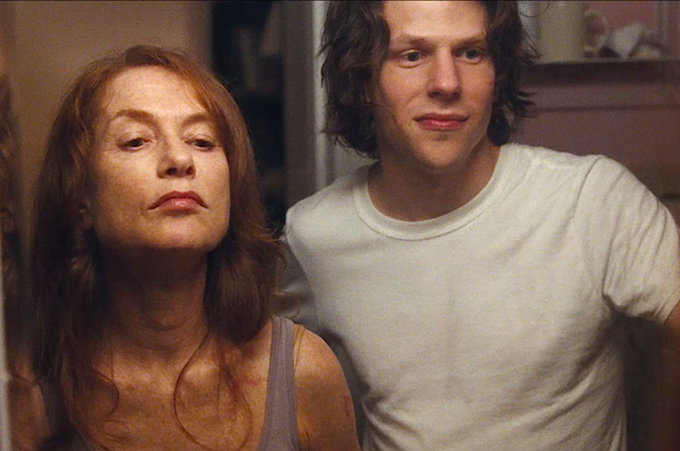By providing your information, you agree to our Terms of Use and our Privacy Policy. We use vendors that may also process your information to help provide our services. This site is protected by reCAPTCHA Enterprise and the Google Privacy Policy and Terms of Service apply.
Cannes: Jesse Eisenberg on ‘Louder Than Bombs’ and How He Doesn’t Watch Movies
Nigel M. Smith


He kicked it off by appearing in James Ponsoldt’s acclaimed Sundance drama “The End of the Tour,” earning awards buzz for his performance in the indie drama. This week saw his latest film, “Louder Than Bombs,” premiere at the 2015 Cannes Film Festival in the main competition. Weeks before the event got underway, the first photo of Eisenberg as Lex Luthor in Zack Snyder’s 2016 blockbuster “Batman Vs. Superman: Dawn of Justice” surfaced online, amping up anticipation for his performance as the film’s chief villain.
In “Louder Than Bombs, directed by Joachim Trier (“Oslo, August 31st”), Eisenberg plays one of two siblings dealing in self-destructive ways with the recent death of their mother (Isabelle Huppert), a former war photographer with a mysterious past. Eisenberg wasn’t in Cannes for the film’s premiere, so Indiewire spoke with the actor over the phone.
What are you filming right now that’s keeping you away from the festival?
 Were you aware of who Joachim was before coming across the screenplay for “Louder Than Bombs,” or did you learn about him after the fact?
Were you aware of who Joachim was before coming across the screenplay for “Louder Than Bombs,” or did you learn about him after the fact?
 What was it like for you as a performer, to switch back between the two projects? They’re obviously so different in scope and scale.
What was it like for you as a performer, to switch back between the two projects? They’re obviously so different in scope and scale. She’s phenomenal. She speaks French first, so I didn’t picture myself with her, either [laughs]. I kept telling Joachim while we were filming, “God, I wish we had more scenes together,” because she’s passed away at the beginning of the film. We only have scenes in flashbacks. There’s a really unusual quality to her that transcends language. It’s hard to describe, but she has this kind of quality that you see in some women — you just want to get their attention. She has that kind of quality. It was good for the dynamic between us because my character is eager for her approval. My character is dismissive of his father and, by contrast, enamored with his mother. The fact that she has this unusually seductive quality, while also being a little bit aloof to my character, was perfect for the relationship.
She’s phenomenal. She speaks French first, so I didn’t picture myself with her, either [laughs]. I kept telling Joachim while we were filming, “God, I wish we had more scenes together,” because she’s passed away at the beginning of the film. We only have scenes in flashbacks. There’s a really unusual quality to her that transcends language. It’s hard to describe, but she has this kind of quality that you see in some women — you just want to get their attention. She has that kind of quality. It was good for the dynamic between us because my character is eager for her approval. My character is dismissive of his father and, by contrast, enamored with his mother. The fact that she has this unusually seductive quality, while also being a little bit aloof to my character, was perfect for the relationship.So you don’t see yourself writing a movie one day?
By providing your information, you agree to our Terms of Use and our Privacy Policy. We use vendors that may also process your information to help provide our services. This site is protected by reCAPTCHA Enterprise and the Google Privacy Policy and Terms of Service apply.















